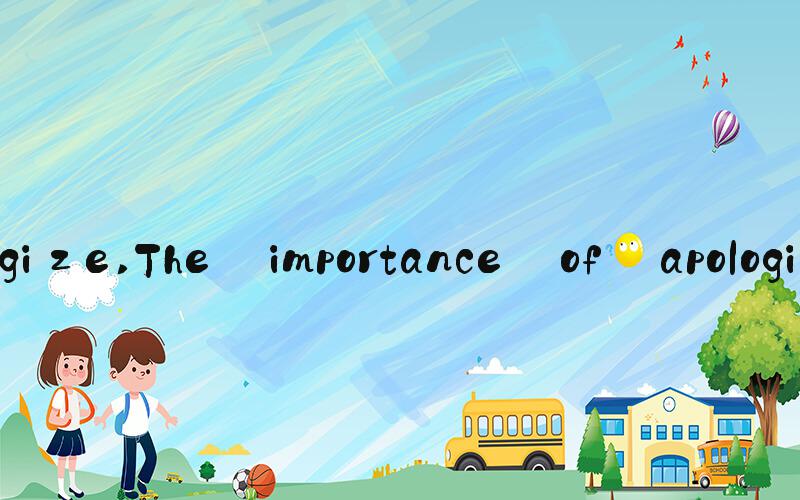 Introduction
IntroductionApologizing is not an easy task. However, it is an important skill everyone should learn. People make mistakes and hurt others unintentionally. When this happens, apologizing can help mend the relationship and restore trust. In this article, we will explore the importance of apologizing, what makes a good apology, and how to apologize effectively.
The importance of apologizingApologizing is important for a number of reasons. It demonstrates that you acknowledge and take responsibility for your actions. It also shows that you care about the person you have hurt and want to make things right. Additionally, apologizing can help rebuild a relationship that has been damaged by hurtful actions. When you apologize, you open the door for forgiveness and a path to move forward.
What makes a good apology?Not all apologies are created equal. Here are some things to consider when crafting a good apology:
Admit to your mistake: This is an important step as it shows that you take full responsibility for your actions.
Show empathy: Try to understand how the other person is feeling and show that you care.
Express your regret: Let the person know that you are sorry for what you have done and the impact it has had.
Make amends: Offer a solution or a way to make things right.
Don't make excuses: Avoid making excuses for your behavior as this can come across as insincere.
Be sincere: This is perhaps the most important component of a good apology. If you are not sincere in your apology, it will be hard for the other person to accept and forgive you.
How to apologize effectivelyNow that we know what makes a good apology, let's look at some tips for apologizing effectively:
Choose the right time and placeWhen apologizing, it's important to choose the right time and place. Find a quiet and private space where you can have a conversation without distractions. Make sure the person you are speaking with is ready to listen and open to hearing your apology.
Start with "I'm sorry"When beginning your apology, it's important to start with the words "I'm sorry." This lets the other person know that you are taking responsibility for your actions and sincerely regret what you have done.
Be specificIt's important to be specific about what you are apologizing for. This shows that you have taken the time to reflect on your actions and understand the impact they have had on the other person.
Listen activelyWhen apologizing, it's important to allow the other person to express their feelings. Listen actively and try to understand where they are coming from. This shows empathy and can help rebuild trust.
Make amendsFinally, it's important to offer a way to make things right. This could be a solution to a problem, an offer to help out, or a promise to change your behavior in the future. This shows that you are committed to making things right and rebuilding trust.
ConclusionApologizing can be difficult, but it is an important skill to learn. By acknowledging your mistakes, showing empathy, expressing your regret, and making amends, you can effectively apologize and rebuild relationships that have been damaged by hurtful actions. Remember, the most important component of any apology is sincerity. If you are sincere in your apology, you can pave the way for forgiveness and a path to move forward.
